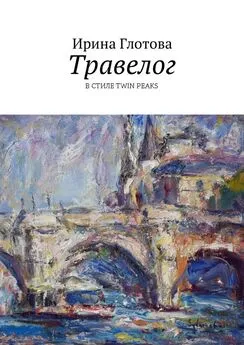Peake, Mervyn - 02 Gormenghast
- Название:02 Gormenghast
- Автор:
- Жанр:
- Издательство:неизвестно
- Год:неизвестен
- ISBN:нет данных
- Рейтинг:
- Избранное:Добавить в избранное
-
Отзывы:
-
Ваша оценка:
Peake, Mervyn - 02 Gormenghast краткое содержание
02 Gormenghast - читать онлайн бесплатно полную версию (весь текст целиком)
Интервал:
Закладка:
As every landing filled with salvage, the exhausted men, their shirts stuck to their backs, their brows shining like candlewax, from the sweat that poured into their eyes, cursed the storm, cursed the water, cursed the day they were born. It seemed to have gone on for ever, this shouldering of giant cases up tortuous stairs; of straining upon ropes, only to hear them snap and the burden crash headlong down the flights they had won so dearly; the aching of their bodies and thighs; this ghastly fatigue. There was no end to it; to the mechanics of gear and rigging; to a hundred extempore inventions; to the levering and the cranking; to the winding of home-made pulleys; to the gradual raising of stock and metal; of fuel, grist and treasure; of vintage and hoards of miscellaneous lumber. From storehouse, depository, vault and warehouse, from magazine, dump and coffer, from granary and arsenal; from the splendid rooms of bygone days where the great 'pieces' mouldered; from the private rooms of countless officers; from the communal halls and the dormitories of the hierophants - from all these places everything went up, the furniture, the chattels, the works of vanity and the works of art; from the enormous tables of carved oak, to the least of silver bracelets.
But all this was not without organization. Behind it all there was a brain at work. A brain that had been drowsing since girlhood - that had been for so long a time unfocused that it had taken no less a thing than Steerpike's rebellion to make it yawn and stretch itself. It was now fully awake. It belonged to the Countess.
It was she who had given the first orders; who had called in the Bright Carvers; who had, with a great map of the central district of Gormenghast spread before her, remained seated at a table at one of the central landings, and, co-ordinating the multifarious activities of salvage and resettlement, had given her subjects no time to think of the peril they were in but only of their immediate duties.
From where she sat she could see the last of the removals from the landing below. The water had reached to about the fifth tread of this upper staircase. She stared down at the four men who were struggling with a long blackish chest. As it moved water poured out of it. Step by step it was hoisted up the wide flight. The lapping water was choked with floating objects. Every floor had delivered to the flood its quota of things lost, forgotten or worthless, the lower regions lifting their buoyant chattels inch by inch to loftier waterways where, joined by fresh flotillas, newly launched, the heterogeneous flotsam grew and grew.
For a few moments the Countess eyed the dark water in the well of the stairs before turning to a group of runners, who were stationed before her.
As she turned to face them a fresh messenger arrived panting. He had been to check the rumours that had reached the central castle of how the Bright Carvers were engaged upon boat-building and had all but gutted the promontory.
'Well?' she said, staring at the runner.
'It is true, your ladyship. They are building boats.'
'Ah,' said the Countess. 'What else?'
'They ask for awnings, your ladyship.'
'Awnings. Why?'
'The lower storeys have been flooded out, as here. They have been forced to launch their boats, unfinished, through the windows. They have no protection from the rain. The upper storeys refused them entry. They are already overcrowded.'
'What kind of boats?'
'All shapes, your ladyship. Excellently made.'
She propped her chin on her big hand. 'Report to the Master of the Rough Hangings. Have him send all the canvas that has been salvaged. Inform the Carvers their craft may be requisitioned in emergency. They must make all the vessels they can. Send me the Custodian of the River Boats. We have some craft of our own, have we not?'
'I believe so, your ladyship. But not many.'
'Next messenger!' said the Countess.
An old man came forward. 'Well?' she said.
'I see no break in the storm,' he said. 'On the contrary...'
'Good,' said the Countess.
At this remark every eye was turned to her. At first they did not trust their hearing. Turning to each other the score or so of officials and messengers who surrounded her could see, however, that none of them had misheard. They were all equally perplexed. She had spoken softly, heavily, hardly above a whisper. 'Good', she had said. It was as though they had overheard some private thought.
'Is the leader of the Heavy Rescue here?'
'Yes, your ladyship.' A tired and bearded figure came forward.
'Rest your men.'
'Yes, your ladyship. They need it.'
'We all need it. What of it? The waters are rising. You have your list of priorities?'
'Yes.'
'Have the leaders of every section made their working copies?'
'They have.'
'In six hours' time the flood will be at our feet. In two hours' time all hands are to be woken. There is no possibility of the night being spent on this level. The Chequered Stairway is the widest. You have my order of priority; livestock, carcasses, corn; and so on, have you not?'
'Certainly, your ladyship.'
'Are the cats comfortable?'
'They have the run of the twelve blue attics.'
'Ah... and then...' her voice tailed away.
'Your ladyship?'
'... And then, gentlemen, we shall begin. The mounting water draws us all together. Is that so, gentlemen?'
They bowed their perplexed assent.
'With every hour less rooms are tenable. We are driven up, are we not, into a confine. Tell me, gentlemen, can traitors live in air and feed on it? Can they chew the cloud? Or swallow the thunder or fill their bellies with lightning?' The gentlemen shook their heads and eyed one another.
'Or can they live beneath the surface of the water like the pike I see below me in the darkness? No. He is like us, gentlemen. Are the sentries posted as usual? Is the kitchen guarded?'
'It is, your ladyship.'
'Enough! We are squandering the time. Give orders that there are two hours' sleep. You will leave me.'
She got to her feet as her audience retired to propagate her instructions and leaned over the heavy balustrade that surrounded the stairhead. The water had risen half the height of a tread since she had heard of the Carvers' boats. She leaned there, like something over life size, her heavy arms folded on the balustrade, a lock of her dark red hair hanging over her wide, pale brow as she stared over and down to where the black water brooded in the well of the stairs.
SEVENTY
When the Countess had heard of Titus' return to the castle, she had summoned him at once and had heard from him of how the heat had overpowered him, and of how he had lost his memory and, after he knew not how long a time, had found himself alone on the outskirts of Gormenghast forest.
As Titus had recounted these falsehoods she had stared at him but made no comment, save, after a long pause, to ask him, whether on his return he had seen Fuchsia.
'I say on your 'return'' (she had added), 'as on your outward journey you were in no state to recognize anyone. Is that so?'
'Yes, mother.'
'And did you see her, when you were returning, or after you returned?'
'No.'
'I will have your story circulated throughout the castle. Within an hour the Carvers will be informed of your loss of memory. Your oblivion was ill-timed. You may go now.'
SEVENTY-ONE
For little short of a fortnight the rain continued unabated; so great a proportion of the castle was now under water that in spite of the rain it was necessary for encampments to be formed upon the suitable roofs which were approached through attic hatchways. The congestion in the upper zones was appalling.
The first of the commandeered flotillas had been paddled across the deep water from the carvers' promontory. On their return journey across the roofs and upper floors the carvers were permitted to take with them what loose timber they could carry.
The Countess had a broad and handsome craft. It was designed for oarsmen and had an ample space for her at the stern to sit and steer with comfort.
The carvers had been supplied with tar and great drums of paint, and this solid boat was decorated with devices of red, black and gold. Its bows rose out of the water with a slow and massive grace and terminated in a carved head that resembled a bird of prey, its throat of sculptured feathers and its bald forehead a dusky scarlet, its eyes yellow and petalled like the heads of sunflowers, its curved beak black and sinister. This idea of a figurehead had been almost universally adopted by the carvers. As much care had been lavished in this way as upon the structure and the safety of the boats.
One day Titus was informed that a special craft had been created for him, and that it awaited him in a southern corridor. He went at once and alone to where it lay floating. At any other time Titus would have cried with joy to receive the slim and silver creature of the waterways, so exquisitely balanced on the flood; to have been allowed to step from the water-logged and immovable table that was half afloat on the castle's seventh floor - to step into this canoe, which, unlike any he had ever seen in his picture books when a child, seemed eager to be away, at the dip of a paddle.
As it was he loved it; but with heartburn. It seemed to remind him of all he vaguely longed for. It reminded him of the days when he hardly knew himself to be an earl; when to have no father and no affection from his mother seemed normal enough; when he had seen no violence; no death; no decay. Of days when there was no Steerpike at large like a foul shadow that darkened everything and kept the nerves on edge; and more than this; the slight canoe beneath him reminded him of the days when he knew nothing of the terrible antithesis within him - the tearing in two directions of his heart and head - the divided loyalties - the growing and feverish longing to escape from all that was meant by Gormenghast, and the ineradicable, irrational pride in his lineage, and the love, as deep as the hate, which he felt, unwittingly, for the least of the cold stones of his loveless home.
What else was it that brought the tears to his eyes as he took the paddle that was handed down to him, and dipped its blue blade in the sullen water? It was his memory of something that had fled as surely as his boyhood had fled; something that was as swift and slight and tameless as he knew this craft would be. It was his memory of the Thing.
He dipped his blade. A craftsman's masterpiece cock'd, as it were, her sweet and tapering head, whispered a curve of silver to the north, and slipping through a dusky gallery, leapt at the quickening of his paddle-stroke. Ahead of him, at the hinge of perspective, far away, a point of light, the water half way up its distant frames, sped towards him, as, skimming the flood of a black corridor, he drew, with every stroke, the nearer to the cold and rain-churned sea.
And all the time his heart was crying, and the exhilaration and the beauty of it all were the agents of his pain. Swiftly as he sped he could not outstrip his body or his mind. The paddles dipped and the craft flew but could not leave his haunted heart behind. It flew with him on the sepulchral water.
And then, as he neared the all-but flood-filled window he realized for the first time how dangerously close was its upper lintel to the surface. The light from without had strengthened considerably during the last hour and the reflection of the square of light had been so strong as to have given Titus the impression that the entire area of light, the reflections included, was an opening through which he could pass. But now he saw that he had only the top half of the bright square through which to skim. Flying towards it he fell back suddenly, and lying with his head below the level of the sides and with his eyes shut he heard the faintest of gritty whispers as, shooting the window, the delicate prow of the vessel grated the lintel.
Читать дальшеИнтервал:
Закладка:



